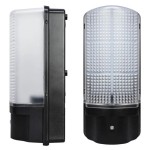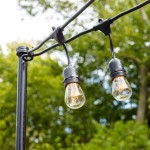The Art of Capturing Captivating Outdoor Portraits: Unveiling the Best Settings
When it comes to outdoor portrait photography, the right settings can make all the difference in capturing stunning and memorable images. Whether you're a seasoned professional or just starting out, understanding the essential aspects of outdoor portrait settings is crucial for creating portraits that truly shine.
1. Lighting: The Key to a Perfectly Exposed Portrait
Lighting plays a pivotal role in outdoor portrait photography. Natural light, the primary source of illumination, can be both a blessing and a challenge. Soft, diffused light, often found on overcast days, can create flattering, even tones on your subject's face. On the other hand, harsh sunlight can lead to harsh shadows and overexposed areas. To combat this, photographers often use reflectors to bounce light back onto the subject's face, reducing shadows and creating a more balanced exposure.
2. Aperture: Controlling Depth of Field
Aperture, the opening in the lens that allows light to pass through, directly affects the depth of field in your portrait. A wide aperture, such as f/2.8 or f/4, creates a shallow depth of field, resulting in a blurry background that draws attention to your subject. This technique is particularly useful for isolating your subject from distracting elements in the background.
3. Shutter Speed: Capturing Motion and Freezing Action
Shutter speed determines how long the camera's sensor is exposed to light. A fast shutter speed, such as 1/1000th of a second or faster, is ideal for capturing moving subjects, such as children playing or athletes in action. This prevents motion blur and ensures sharp, crisp images.
4. ISO: Balancing Image Quality and Noise
ISO, the sensitivity of the camera's sensor to light, plays a crucial role in low-light situations. A higher ISO, such as ISO 800 or 1600, increases the sensor's sensitivity, allowing you to shoot in dimly lit environments without using a flash. However, higher ISO settings can also introduce noise, which can degrade image quality. Finding the right ISO balance is essential for achieving both proper exposure and acceptable noise levels.
5. White Balance: Achieving Natural Colors
White balance adjusts the color temperature of your images, ensuring that white objects appear truly white. Different light sources, such as sunlight, tungsten lights, and fluorescent lights, have different color temperatures. Your camera's white balance settings allow you to calibrate the camera to the specific light source, ensuring accurate color reproduction in your portraits.
In summary, mastering the essential aspects of outdoor portrait settings is paramount for creating captivating and professional-looking images. By understanding the interplay of lighting, aperture, shutter speed, ISO, and white balance, you can harness the power of natural light and capture stunning outdoor portraits that truly capture the essence of your subjects.

Settings For Portraits Taken Indoors Outdoors

What Is The Best Setting For Outdoor Portraits With Examples Formed From Light

Settings For Portraits Taken Indoors Outdoors

10 Settings And Equipment Tips For Portrait Photography

10 Settings And Equipment Tips For Portrait Photography

Settings For Portraits Taken Indoors Outdoors

Settings For Portraits Taken Indoors Outdoors

Settings For Portraits Indoor Outdoor Group Photoshoot Photography Portrait Tips

Digital Photography Secrets Taking Great Outdoor Portraits For Dummies

Best Settings For Outdoor Portraits By B C
Related Posts







